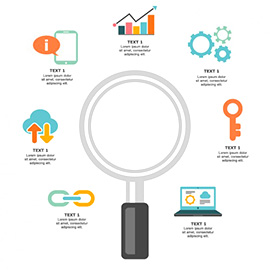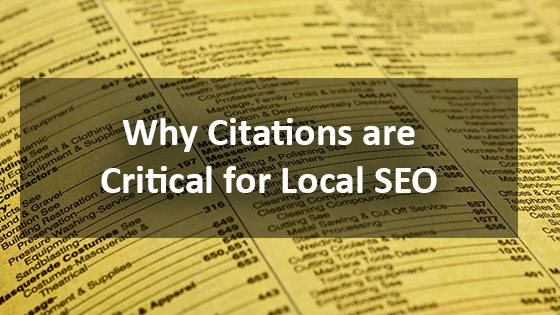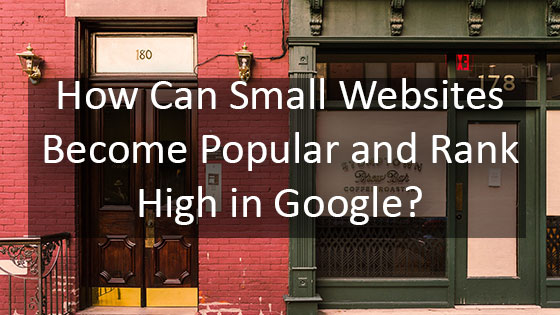It’s all about location, location, location, as the old saying goes.
And it seems the adage rings true not just in regards to real estate, but in today’s SEO landscape, too–particularly when it comes to local search results.
The buzz in the biz has been that the future of SEO lies in local search. According to Google, “near me” searches have jumped 146% over the last year, with over 88% of these searches being done on mobile devices.
That’s why we challenge you, as a digital marketing practitioner or business owner, to do a quick experiment.
Pull up the good ol’ Google and do a “near me” search for something. Anything–a locksmith, a library, a dog groomer, what have you.
Now take a look at the local pack results.
Notice anything?
Unless you live in a VERY small town with only one of any given option, chances are your search has produced results within a pretty tight radius to your location.
Now look a little closer. These results may be of high quality, maybe not. They may be a Google-verified business. Maybe not. They might have Google reviews. They might not. They might be businesses that don’t even have websites.
This is not a mistake, even though it seems to fly in the face of all that SEO aficionados hold dear.
Why aren’t higher quality results topping the search list? What sort of cosmic shift has occurred in those algorithms that we work so hard to harness in our (or our client’s) favor?
Because, friends, Google is giving more and more ranking strength to proximity over traditional search ranking factors.
SEO kingpin Moz has even gone as far as making this bold claim:
“Proximity to searcher is the new #1 ranking factor in local search results today.” – Darren Shaw @ Moz
A bold claim, but one certainly not without merit, as more and more industry leaders are discovering.
Why would Google do such a thing, you ask?
After all, doesn’t this potentially put you at odds with the search engine?
We’re generalizing here, but we bet that most people, in most instances, want the best QUALITY results in from their search queries rather than those that are simply closest to them.
Sure, if your car is running on fumes or your toddler accidentally-on-purpose locked you out of the house, proximity might be a priority.
But if you are looking for, say, a neurologist or a new restaurant for Friday Date Night or a lawyer to handle a messy divorce, you want QUALITY to be the dominating factor of your SERPS.
So you say again, WHY Google WHY? Explain yourself!
It’s quite simple really. Tightening the local search market increases competition and ups the ante for the players.
Which means that Google gets to sell more ads.
“If it’s harder to get into the organically driven local packs, then businesses will need to pay to get into their fancy new paid local packs.” -Darren Shaw @ Moz
And here’s some more food for thought: this is going to complicate local SEO rank testing for digital marketers and business owners.
Maybe you want to see how your client or business in another location is ranking. How are you supposed to get this crucial information since Google has removed the location search filter and is primed to provide you results based on YOUR location? It also means that whatever results you see are likely to be different from the results a potential customer will see.
So that leads us to the final and most important question: what now?
If you are a small or local business owner, you are going to have to step up your optimization and local organic game (content, links, etc.), or get a professional local SEO agency to do it for you.
Make sure your business listings are claimed and verified. Go beyond Google and make sure your listings on sites like Yelp, TripAdvisor, Angie’s List, and BBB are up-to-date, informative, and optimized. Encourage all your clients to leave comments and reviews on all these platforms.
For SEO pros, realize that long and short tail hyperlocal keywords are going to be more important and therefore more competitive. Proximity search simply MUST be a part of your local SEO strategy.
And as far as rank testing goes, you can always go with paid platforms, but there are a few free workarounds too.
Google’s AdPreview tool works surprisingly well when it comes to search emulation from different localities (and devices, countries, and languages), regardless of whether you have an Adwords account or not. You can also fake your location in Google Chrome using the Developer Tools (hit up the blog Digital Inspiration for the full details!).
Some parting thoughts
We realize we’re probably coming across a bit cynical here. Google most likely isn’t ONLY trying to squeeze more money out of it’s advertising. Their efforts are generally genuinely intended to provide users with the best search experience possible. And SEO has always been “adapt or die” sort of a field.
That’s what digital marketing professional like us here at TheeHouston.Agency love about what we do: the constant change and consistent challenge.
We are here to make sure our clients are getting seen no matter what’s happening in the land of the search engines. Contact us today to discover how we can help you tame the beast that is Google and dominate the local SEO playing field.








